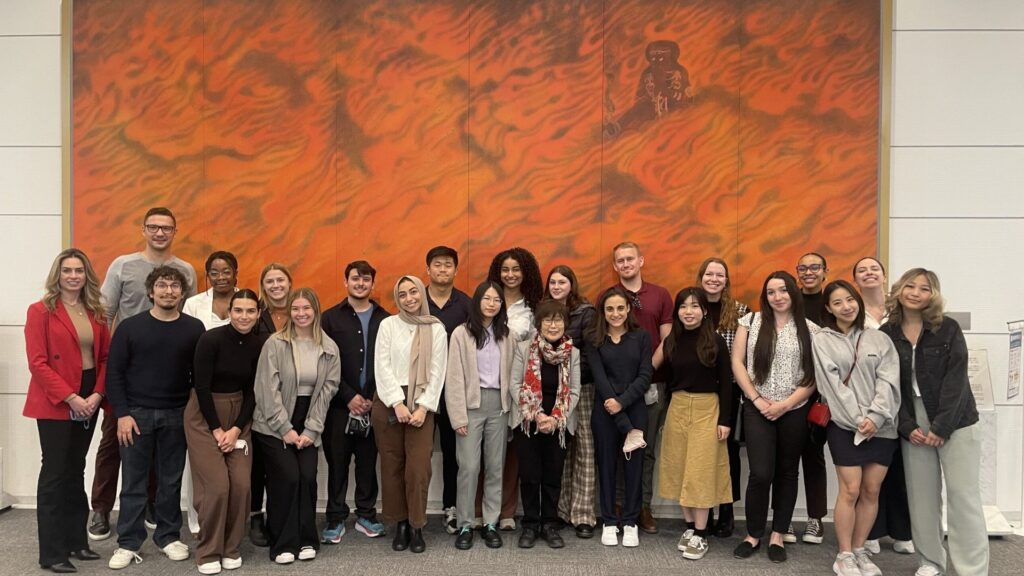Study Abroad Risk Assessment:
Building Resilience for the Unexpected
The article highlights the importance of cultivating resilience, offering insights into essential strategies for preparing students and faculty for the dynamic challenges of studying abroad. It provides a comprehensive guide to ensuring a well-rounded and impactful international educational journey.
Imagine embarking on a journey that promises not only academic enrichment but also a mosaic of cultural experiences, only to be met with unforeseen challenges that test your resilience at every turn. This is the reality of studying abroad—a thrilling adventure that comes with its own set of uncertainties. For educators, the mission is to equip the study abroad program participants for these unpredictable moments, ensuring they can navigate the highs and lows with confidence. In this article, we’ll explore practical strategies for building resilience, equipping our global learners with the skills and mindset needed to turn unexpected challenges into opportunities for growth.
Key Strategies for Building Resilience during Study Abroad
1. Embracing a Proactive Mindset
The cornerstone of any study abroad risk assessment is a proactive mindset. Encourage students and faculty (if they are attending the program) to research their destination thoroughly, understanding not just the cultural nuances but also the potential risks. This knowledge empowers them to make informed decisions and adapt their behavior accordingly.
Beyond mere research, a proactive mindset also involves staying updated with real-time information about the destination. Encourage the use of reliable sources such as government travel advisories, news outlets, and local contacts to stay informed about any developing situations.
Additionally, fostering a sense of preparedness is key. Equip the participants with practical skills such as basic first aid, emergency response, and local language basics. This not only boosts their confidence but also enhances their ability to handle unexpected situations effectively.
2. Cultivating Cultural Competence
Cultural competence is more than appreciating local customs; it’s about developing empathy and flexibility. By fostering an environment of open-mindedness and curiosity, educators can prepare students to navigate cultural differences gracefully, turning potential conflicts into learning opportunities.
To deepen this understanding, educators can incorporate intercultural communication training into pre-departure programs. This training can include role-playing exercises, case studies, and discussions that challenge students to think critically about their own cultural biases and assumptions.
Encouraging active engagement with the local community is another crucial aspect of cultivating cultural competence. Encourage students to participate in local events, volunteer activities, or language exchange programs. These experiences provide authentic insights into the host culture and foster meaningful connections with locals.
3. Prioritizing Health and Safety

Health and safety are paramount in any international experience. Equip your students and faculty with comprehensive health insurance and ensure they are aware of local medical facilities. Encourage regular check-ins and establish clear communication channels for emergencies. This proactive approach not only safeguards their well-being but also instills confidence.
In addition to insurance and medical awareness, it’s crucial to educate participants about health precautions specific to their destination. This includes vaccinations, food and water safety, and awareness of any prevalent health risks. Providing them with a health and safety guide that covers these aspects can be an invaluable resource.
Furthermore, mental health support is an essential component of overall safety. Ensure that participants have access to mental health resources, such as counseling services or support groups. This support can be critical in helping them cope with the stress and challenges that may arise during their time abroad.
4. Developing Crisis Management Skills
Crises are inherent to studying abroad. Equip students with basic crisis management skills, such as staying calm, assessing situations quickly, and knowing when and how to seek help. Regularly update emergency plans and conduct drills to ensure everyone is prepared to act decisively in high-pressure situations.
To further enhance these skills, incorporate scenario-based training into your preparation programs. This training can include simulations of real-life emergencies, such as natural disasters, political unrest, or health crises. These exercises help students and faculty practice their response strategies and decision-making under pressure.
Additionally, fostering a culture of open communication is crucial in crisis management. Encourage students and faculty to share their concerns and experiences. This not only helps in identifying potential risks early on but also promotes a sense of community and support, which is vital during challenging times.
5. Encouraging Self-Reliance and Adaptability
Self-reliance is a critical skill for anyone studying abroad. Encourage students to take ownership of their experiences, from managing finances to navigating transportation on their free days. This independence fosters adaptability, enabling them to adjust to new environments and overcome obstacles with resilience.
Additionally, promoting problem-solving and decision-making skills is also essential to cultivating self-reliance and adaptability. Encourage students to approach challenges with a solution-oriented mindset, considering various options and potential outcomes. This practice not only prepares them for the immediate obstacles of studying abroad but also equips them with lifelong skills for personal and professional success.
6. Building a Supportive Community
A strong support network is invaluable when facing the unknown. Encourage students to build connections with peers, locals, and faculty. These relationships provide emotional support and practical assistance, making daunting challenges more manageable.
To further develop a supportive community, educators can facilitate mentorship programs or buddy systems, pairing new students with experienced peers or locals. This provides a personalized support system, easing the transition into the new environment and fostering a sense of belonging. Additionally, creating online forums or social media groups can keep the community connected, providing a platform for sharing experiences, advice, and encouragement.
The Way Forward: Embracing Challenges with Confidence and Curiosity in Study Abroad Risk Assessment
Preparing the program participants for the unexpected challenges abroad is not just about mitigating risks; it’s about empowering them to embrace the full spectrum of their international experiences. By fostering resilience, we equip them with the tools to navigate challenges, adapt to new environments, and emerge stronger from their adventures.
